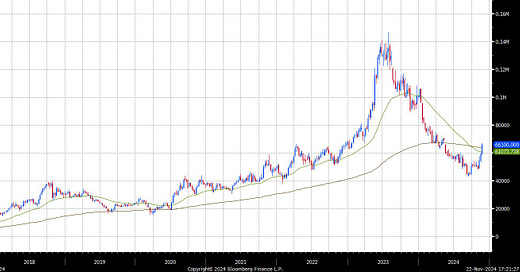This was a topic of conversation between my daughter and I on the school run this morning. There was a song on the radio neither of us could understand the lyrics of.
There are several reasons for this trend. Some are as mundane as clear enunciation is difficult when hitting high notes. However, there is also the additional reason that the modern pop music genre focuses on the beat and emotion of music rather than the message of the lyrics.
South Korea’s K-pop companies proved that point with the success of successive bands that sing in Korean and throw in emotive English words as punctuation points in their songs.
Companies like Hybe (formerly Big Hit Entertainment) and JYP Entertainment have commercialised the lessons from music theory to great effect.
There is an additional reason for the success of this type of music. The younger generation in several Western countries are either multi-lingual and/or less than fluent in English. Creating music that is emotionally appealing without heavy lyrics is a successful strategy.
The fact the younger generation is significantly more diverse than preceding generations has been a primary marketing vector for the entertainment industry for more than a decade.
Companies like Disney have prioritised diversity. They wish to appeal to younger people because they will be the consumers of the future.
There is a good argument that they went too far by simultaneously promoting sexual diversity to children. That has led to a backlash and the eruption of a cultural war that was a factor in the recent US election.
This is all part of the broader discussion about immigration that is topical in several countries at present.
I’ve lived and paid taxes in four countries so I have more experience than most with migration.
There is a tendency among migrants to do what is necessary to get into a country and to support tighter control on others getting in subsequently. That’s not politically correct, but the logic is easy to understand.
People leave their native country for both push and pull factors. The push factors are often because there is a lack of opportunities and the political/economic environment is not appealing. The pull of the new country is the promise these factors are better.
Successful immigrants are keen to enjoy the benefits of the new country, not to share them with the people back home. That’s especially true with unrestricted migration.
For those who followed the rules, endured the waits, forms, interviews and costs, unrestricted migration is an insult.
I strongly believe that is a factor many in the media do not understand, because they tend to lump all migrants together in a single basket.
This question is going to be particularly disruptive as the Trump administration ramps up rhetoric on deportations. However, it is also a significant issue for the UK and several European countries.
In my hometown of Killarney in Ireland, 80% of the hotel beds are still occupied by Ukrainian refugees. What to do with large numbers of refugees from war torn countries in Europe versus those from Africa is a very contentious subject.
The bigger question is whether this is a taste of what we can expect from the future. Demographics are inevitable. The bulk of the children born in the next 30 years will be in Africa and Asia. There is no guarantee they will stay there.
The time to create rules on migration and discuss the merits of points based systems, like Australia and Canada is now. Without a clear minded discussion on policy, the potential for social unrest is high.
JYP Entertainment rallied over the last two weeks to break an 18-month downtrend.




